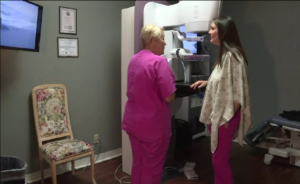Doctors of the world revives the debate on the price of anti-cancer drugs

It must be said that the new technique implemented by these treatments is revolutionary. It involves doping certain cells, called T cells, so that they destroy tumors. For this, the protocol provides for taking the cells from the sick patient, modifying the genome using a retrovirus and injecting them back into the patient’s body. A manipulation to perform, therefore, on each person. The injection of genetically modified cells is done in a single time. And if the treatment works, healing is final.
“Private start-ups have vampirized public research”
If the NGO complaint, filed with the European Patent Office against Kymriah disseminated by the Novartis laboratory, aims to draw attention to “the exorbitant prices” of these new treatments, the NGO intends also point out the operating mode of pharmaceutical
“For thirty years, pharmaceutical companies have outsourced much of the research and development of new drugs to start-ups,” explains Olivier Maguet, head of the Medicine Prices mission at Doctors of the World. “These companies file for the patent and then take advantage of their monopoly position to be bought at the price of gold, sometimes up to 30 billion euros,” he continues. The result: drug prices are skyrocketing. These private start-ups have vampirized public research. Tackling patents would clean up the system. “
How are the prices of cancer drugs set?
It is not the first time that Doctors of the World has attacked the patent for a drug in this way. In 2014, the NGO had already filed an appeal against sofosbuvir, a treatment against hepatitis C, sold at € 41,000 per person. A recourse that the association partially won in 2016 but which is currently the subject of an appeal.
An agreement between public and professional authorities
The controversy over the prices of these new drugs, reactivated by the action of Doctors of the World, is not new. In the United States, where these treatments have been authorized for several years, doctors regularly protest against the prices charged by manufacturers and their regular increase. An impossible development in France, where the prices of medicines are the subject of an agreement between public authorities and professionals.
Jean-Paul Vern ant, professor of haematology at the Pipit-Saltpetre hospital in Paris, who has made the price of medicine one of his hobby horses is very critical of establishment policies such prices. “It is obvious that the cost of research and manufacture of the product has nothing to do with the price asked by the laboratories,” he continues.
He is in favor of making the molecule used to modify cells accessible to public laboratories. “It is likely that if this were the case, a cell therapy laboratory at a public hospital could do the same for around € 50,000. “
Social security coverage
Head of the haematology department at the Hospices Civil de Lyon, Professor Giles Sales is one of those who, in France, use these cellular treatments. In total, he has administered these new drugs to around 40 patients, all adults, since August 2018, the date of the marketing authorization issued by the French authorities. Everything was taken care of by Social Security.
If he admits that the price of these treatments may seem excessive, he believes that it should be compared to that of other existing treatments in the field of cancer control. “Some treatments, such as scrutinise given to patients with leukaemia, cost € 72,000 a year. On the one hand, they must be continued for years, and on the other hand, they offer no prospect of recovery, comments this specialist.
On my patients, it is still a little early to speak of results, but what we can say for the moment is that 40% of patients have seen their disease disappear after three months. Results to be confirmed in the coming months. “
When it comes to cancer, the gap between men and women is narrowing
The number of new cases of cancer declared in mainland France rose to almost 382,000 in 2018, according to a large report published Tuesday June 3 by Public Health France: 204,583 in men and 177,400 in women.
In 2018, around 157,400 people died from cancer (89,621 in men, 67,800 in women).
The number of new cases, all cancers combined, was stable in men (+ 0.1% per year), while it increased in women (+ 1.1% per year).







